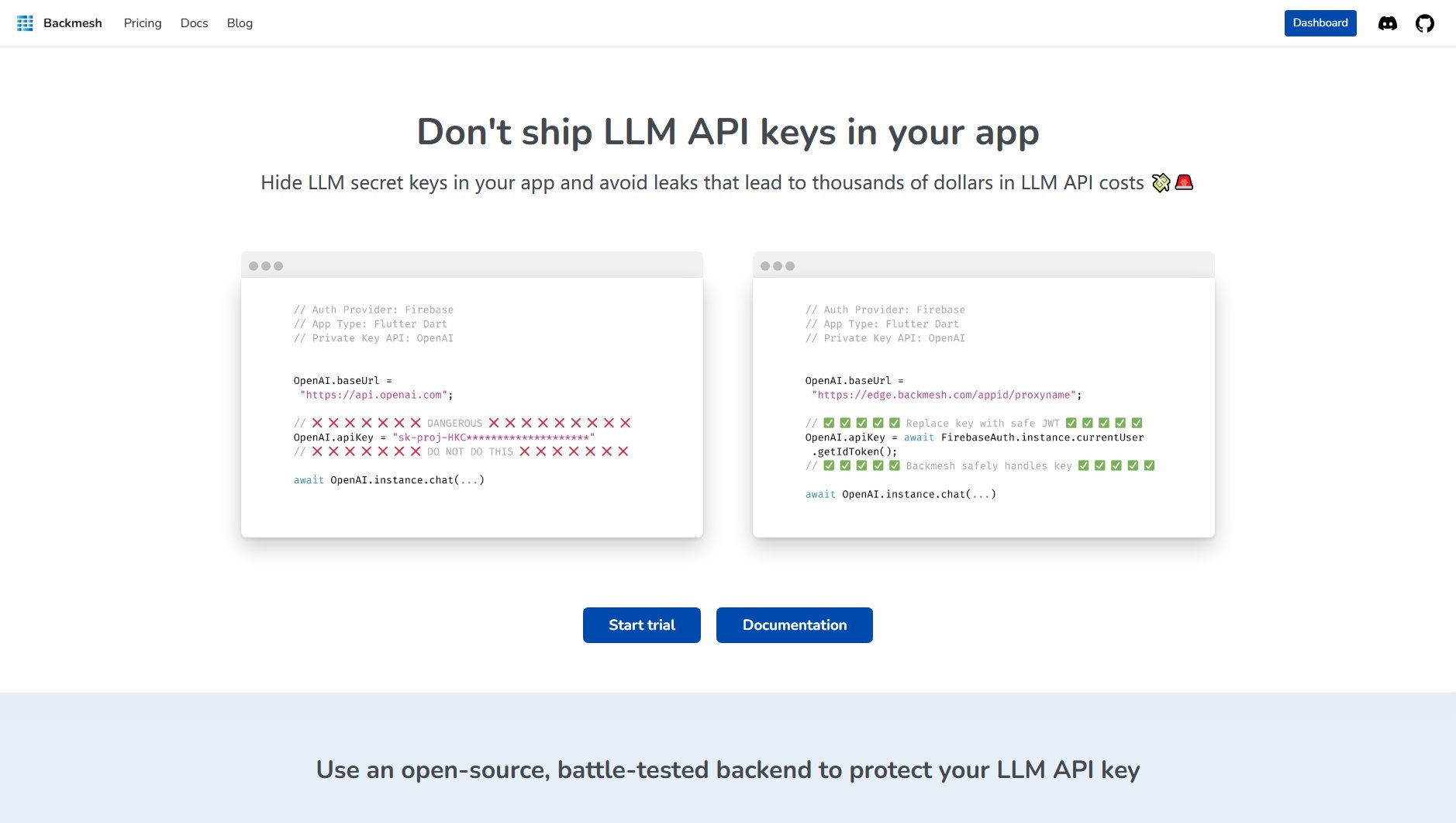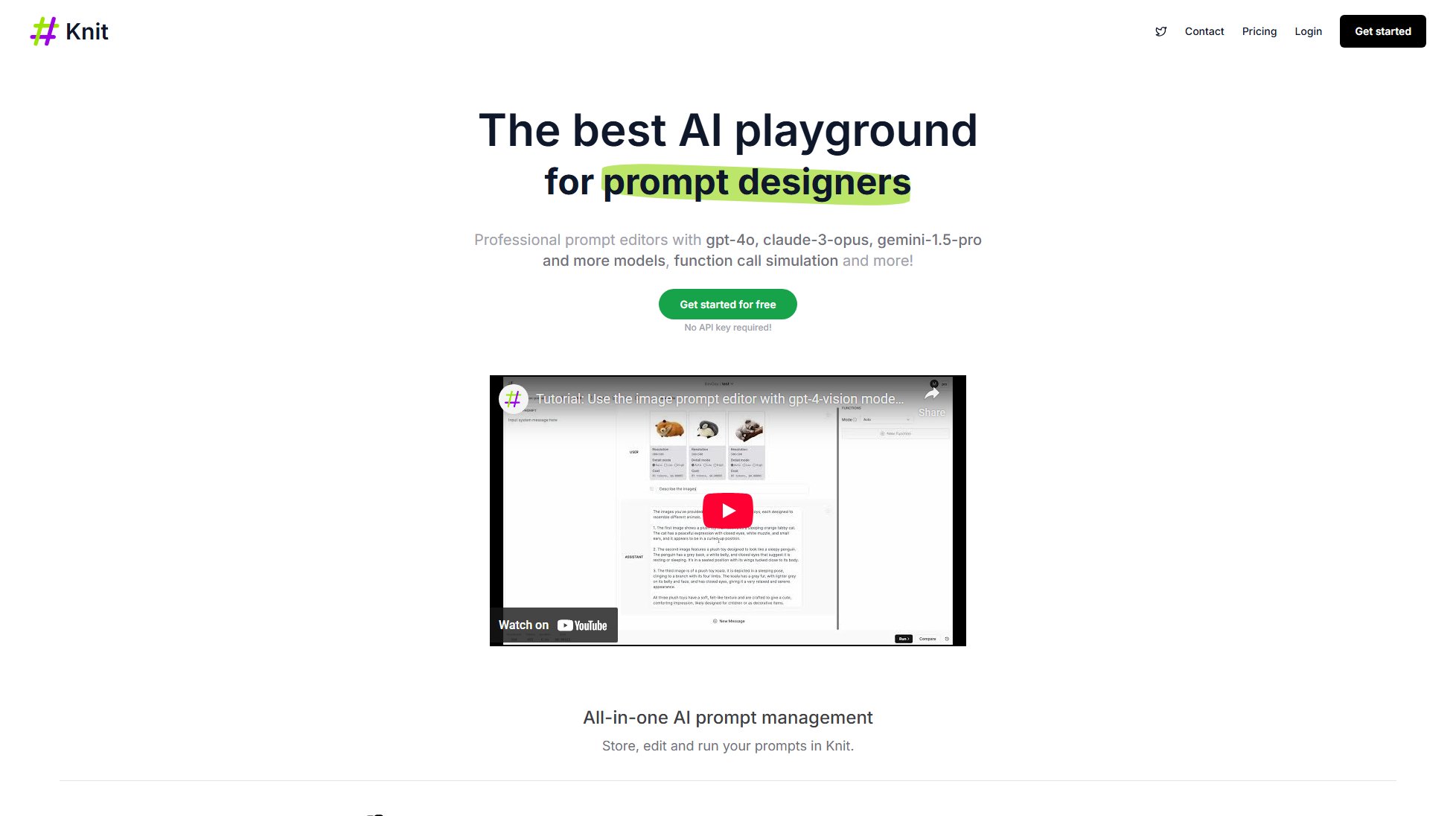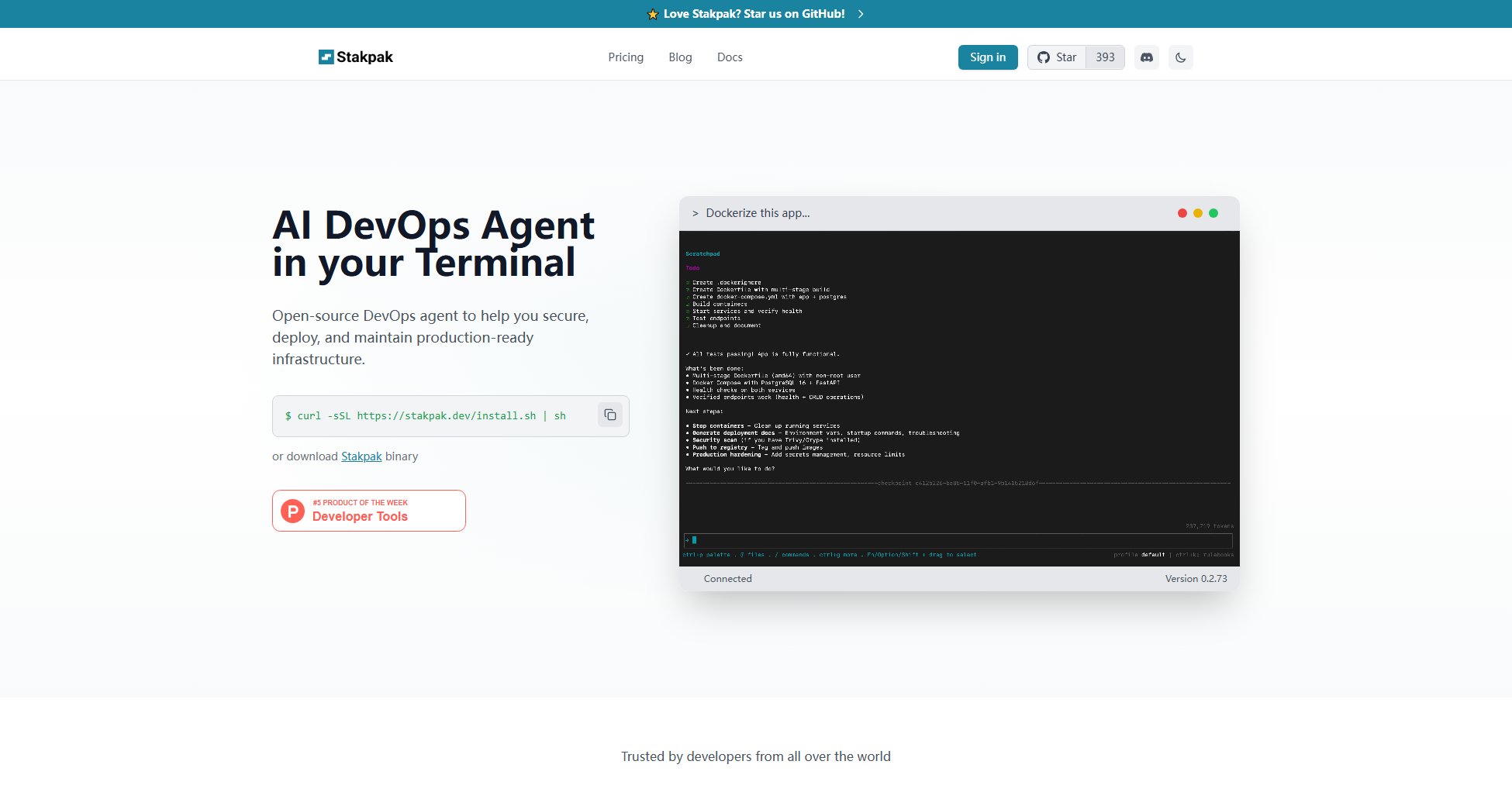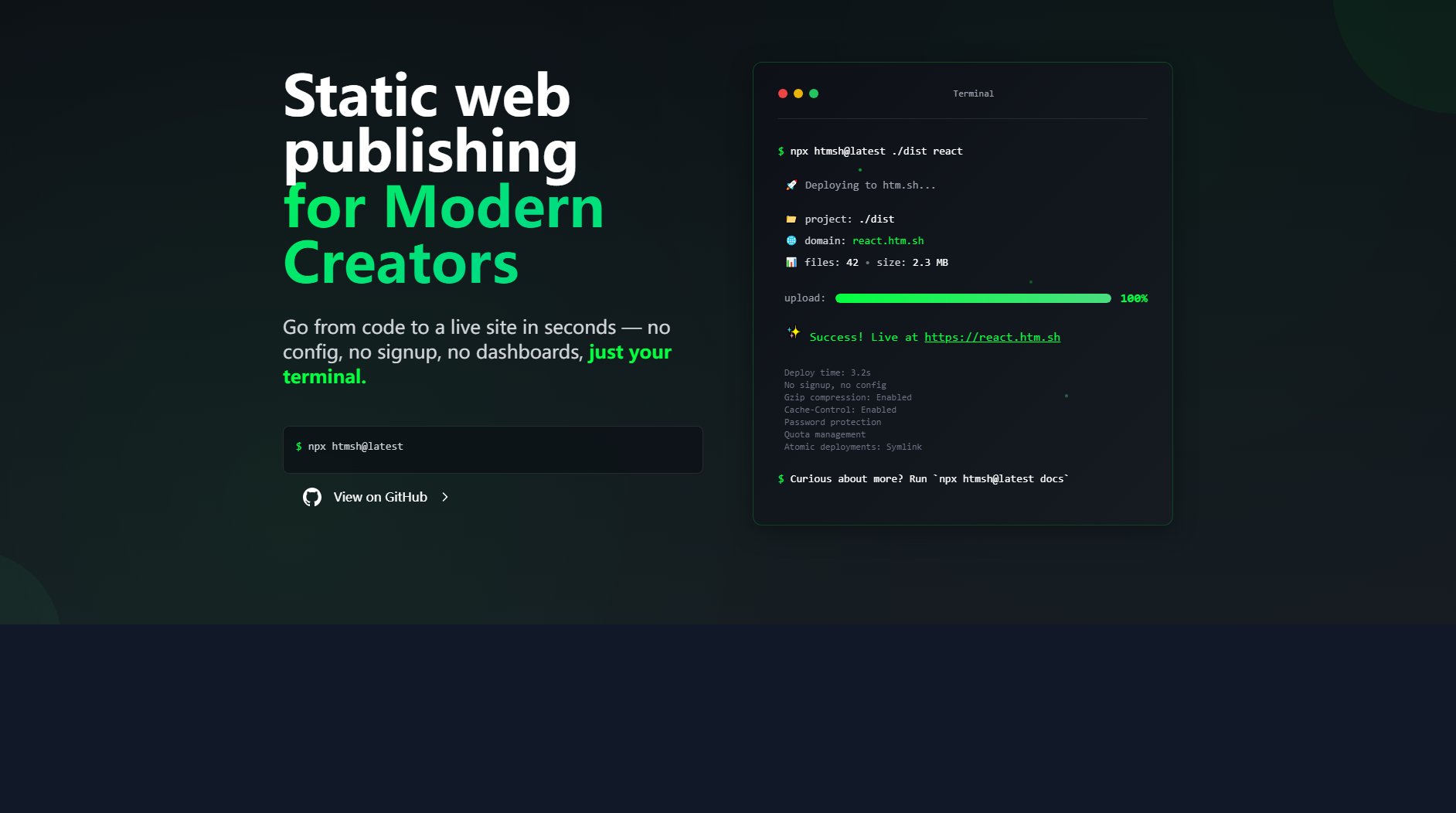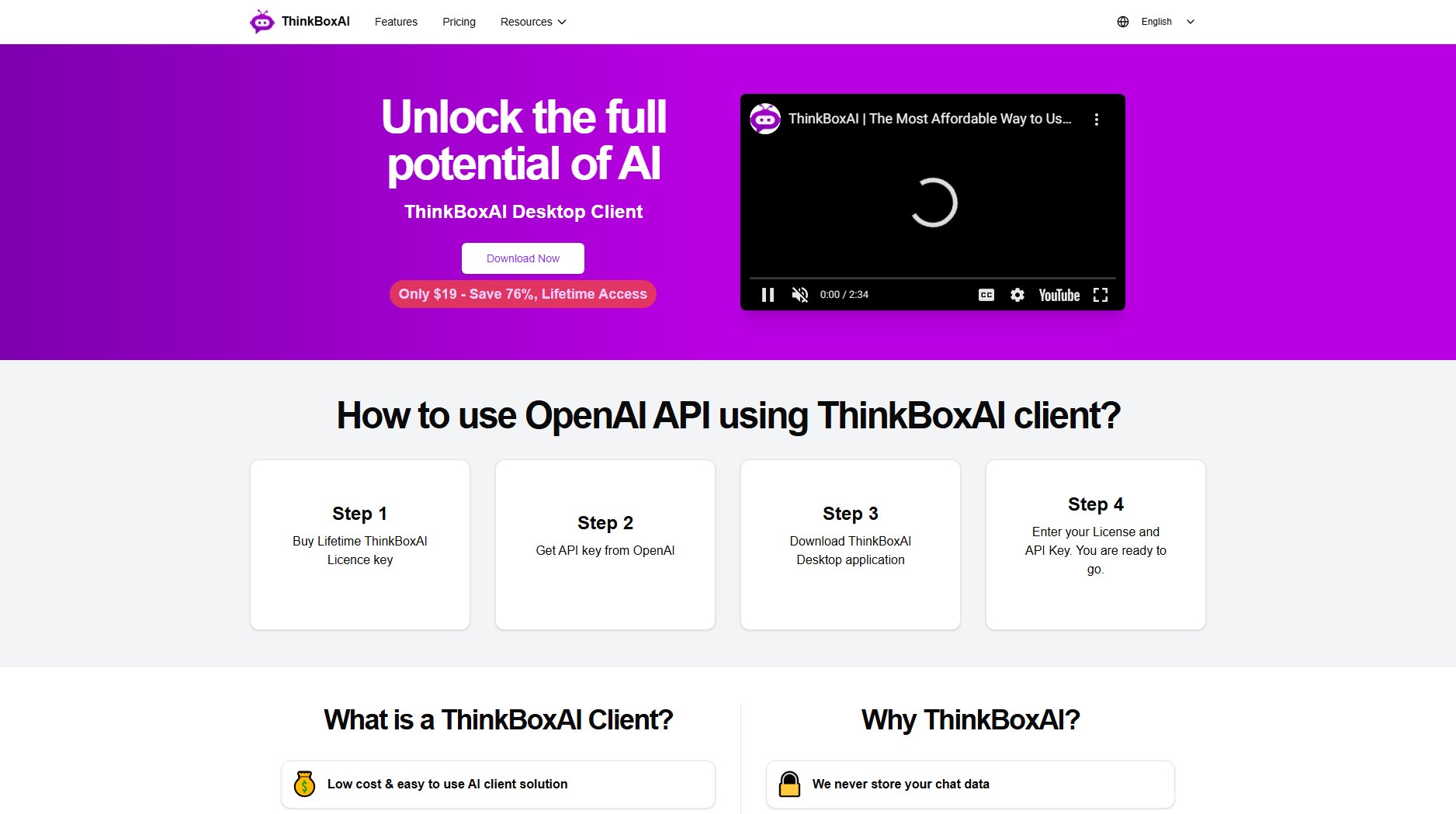Forge Code
A non-intrusive AI assistant for terminal-based coding
What is Forge Code? Complete Overview
Forge Code is a lightweight AI assistant designed specifically for terminal users, offering seamless integration with your existing development workflow. It serves as an AI pair programmer that understands your tech stack and helps with coding tasks directly in your command line interface. The tool solves key pain points for developers by providing intelligent assistance without requiring them to switch IDEs or disrupt their workflow. Forge Code is particularly valuable for engineers who prefer terminal-based development and want AI assistance that respects their existing toolchain. It supports various AI models and allows users to control the balance between speed and accuracy based on their needs. The tool is trusted by professionals across industries, from individual developers to engineering teams at companies like The Souled Store, Agoda, and Mosaic Wellness.
Forge Code Interface & Screenshots
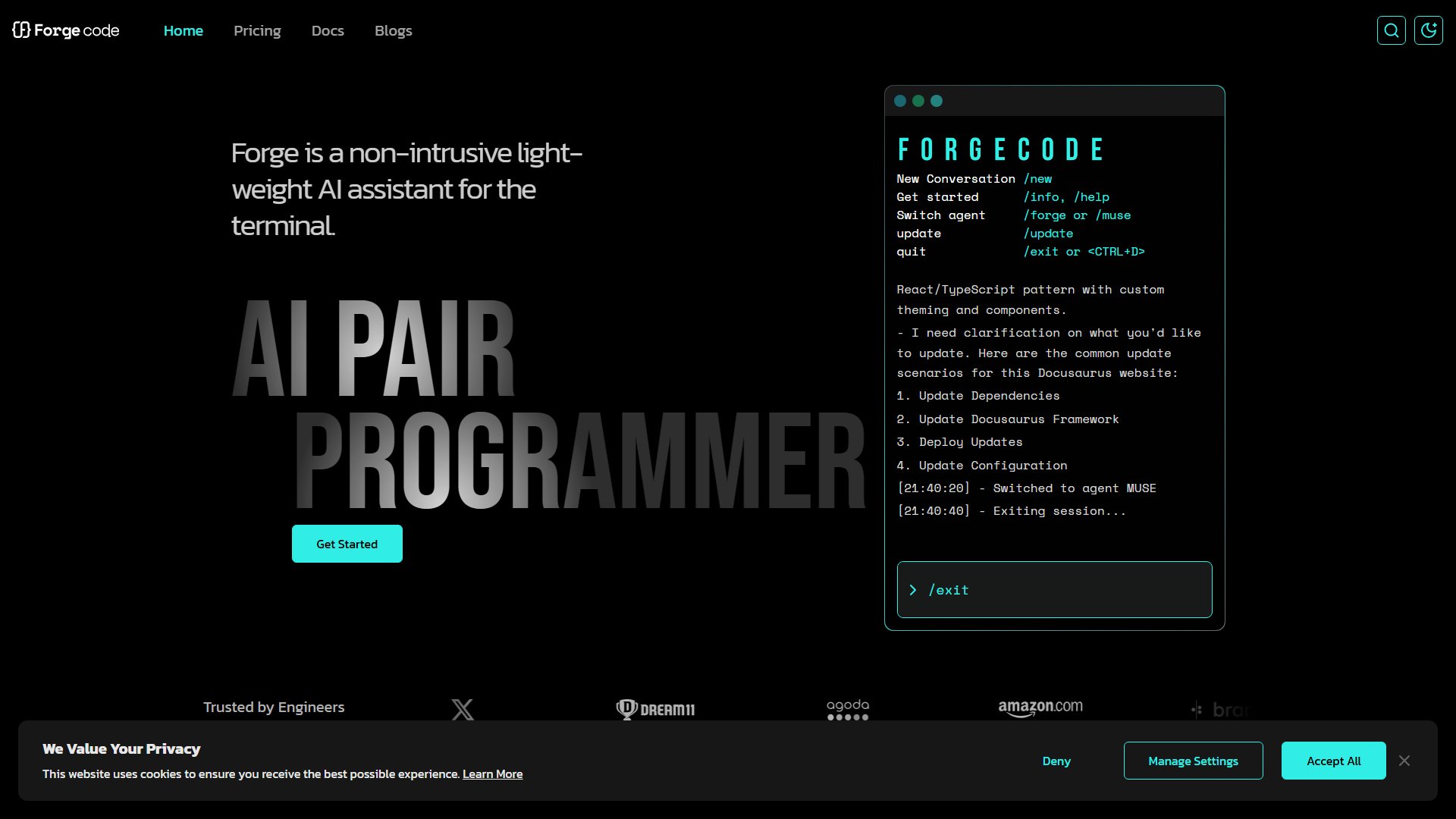
Forge Code Official screenshot of the tool interface
What Can Forge Code Do? Key Features
Terminal-native Integration
Forge Code works natively with your CLI, eliminating the need to switch IDEs. It seamlessly integrates with popular development environments including VS Code, Xcode, Neovim, IntelliJ, and Android Studio while maintaining access to all your existing CLI tools.
Model Flexibility
Choose the right AI model for each task - use thinking models for complex planning, fast models for quick code changes, or large context models for big files. Forge Code allows mixing models within a single workflow for optimal results.
Enterprise Control
Teams maintain complete control over their codebase with support for self-hosted LLMs and cloud providers. Forge Code offers full visibility and governance, making it suitable for organizations with strict security requirements.
Specialized Agents
Create and share custom agents tailored to specific use cases like frontend, backend, or DevOps development. These specialized agents can be shared across teams to standardize coding practices and improve collaboration.
Large-scale Refactoring
Handle complex codebase migrations and refactors with built-in task management, progress tracking, and intelligent context management. Forge Code helps manage large-scale changes without losing context or breaking workflows.
Best Forge Code Use Cases & Applications
Rapid Prototyping
Frontend developers can use Forge Code to quickly generate UI components and implement features while staying in their terminal workflow, significantly speeding up prototyping phases.
Legacy Code Migration
Engineering teams can leverage Forge Code's large-scale refactoring capabilities to modernize legacy systems, with the AI assistant helping manage complex dependencies and context across files.
Cross-team Collaboration
DevOps teams can create specialized agents for infrastructure-as-code tasks and share them with development teams, ensuring consistency in deployment configurations across the organization.
How to Use Forge Code: Step-by-Step Guide
Install Forge Code by running 'npx forgecode@latest' in your terminal. This will set up the tool with all necessary dependencies.
Start a new conversation with '/new' command or get help using '/info' or '/help'. These commands provide guidance on available features and options.
Switch between different AI agents using '/forge' or '/muse' commands based on your current needs - whether you need coding assistance or planning support.
Update the tool when new versions are available using the '/update' command to access the latest features and improvements.
Exit the tool using '/exit' or CTRL+D when you're done with your session. Your work will be saved for future reference.
Forge Code Pros and Cons: Honest Review
Pros
Considerations
Is Forge Code Worth It? FAQ & Reviews
Forge Code works with models from leading providers including OpenAI, Anthropic, Google, xAI, Meta, Mistral, and Deepseek, giving you flexibility in choosing the right model for each task.
Yes, Forge Code is designed to work alongside your favorite IDE, whether it's VS Code, Xcode, Neovim, IntelliJ, or others, without requiring you to switch development environments.
Yes, Forge Code offers a completely free version for personal use with community support and BYOK (Bring Your Own Key) functionality.
The enterprise version includes codebase indexing and contextual memory features that help manage large projects, along with intelligent context management for handling massive refactors.
Yes, you can build and share specialized agents (like Frontend or DevOps agents) tailored to your specific needs and share them with your team members.

